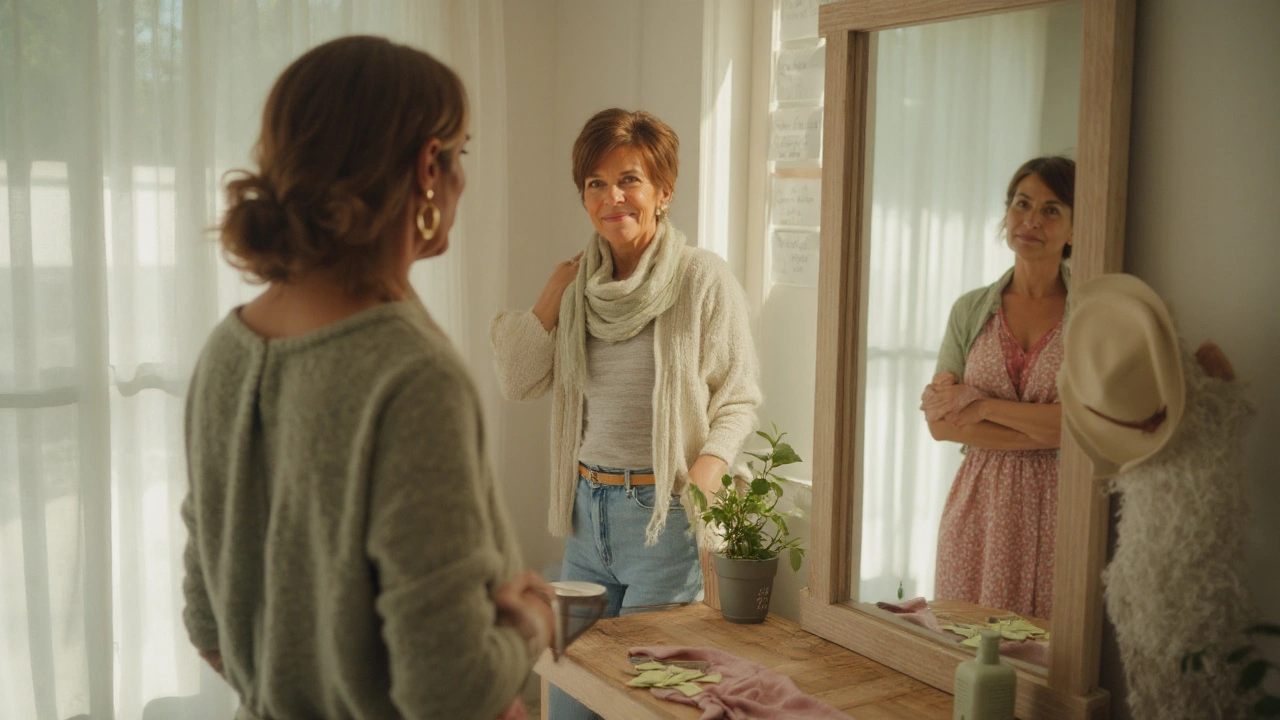Body Image: Simple Steps to Feel Better About Your Body
Your body image is the way you see and feel about your own shape, size, and overall look. It shapes how you act, what you wear, and even how you talk to yourself. When it’s healthy, everyday tasks feel easier.
Why Body Image Matters
A negative body image can drag down mood, cut into motivation, and make social situations stressful. You might skip activities you enjoy or avoid certain clothes because you doubt how you look. On the flip side, a positive view helps you try new things, stay active, and keep a steadier mood.
Media, friends, and even family feed ideas about what “should” be attractive. Those ideas are often unrealistic—photos are edited, angles are chosen, lighting is perfect. Knowing that the picture you see isn’t the whole truth can loosen its grip on your mind.
Everyday Actions That Help
Start with your inner dialogue. When a critical thought pops up—"I’m too big," or "My skin looks bad"—swap it for a neutral fact: "I have a sturdy frame," or "My skin needs moisture today." Changing the words doesn’t erase feelings, but it stops the spiral.
Keep a gratitude list focused on your body. Write three things each night that your body let you do—walk to the store, lift a box, smile at a friend. Over time these notes remind you of function over appearance.
Movement works best when it’s about feeling good, not burning calories. Pick activities that make you laugh or relax: dancing in your room, hiking a nearby trail, yoga while listening to music you love. Notice how the motion lifts mood before judging any change in shape.
Dress for comfort and confidence. Choose clothes that fit well and let you move easily. When you feel comfortable, you’re less likely to stare at perceived flaws and more likely to focus on what you can do.
Surround yourself with supportive people. Friends who compliment effort over looks, or who share their own insecurities, create a safe space for honest conversation. If someone constantly feeds negative comments about bodies, set a boundary or limit time with them.
Consider professional help if thoughts feel stuck. Therapists trained in body‑image work can give you tools to challenge deep beliefs and build healthier habits. It’s okay to ask for guidance—mental health is as real as any physical condition.
Online communities can also be a boost, but pick ones that promote realistic standards and kindness. Forums where members share progress, recipes, or coping tips often provide encouragement without pressure.
Remember that body image isn’t set in stone. It shifts with life events, stress levels, and even seasons. Treat it like any other habit: notice when it’s off‑balance, make a small tweak, and keep moving forward.
Finally, be patient with yourself. Changing the way you see your own body takes time, and setbacks are normal. Celebrate tiny wins—like looking at a mirror without sighing, or choosing an outfit because you like it, not because you think others will approve.

Exemestane and Body Image: Practical Tips to Cope With Physical Changes
On exemestane and struggling with body image? Learn what changes to expect and practical ways to cope, from clothes and skincare to movement, intimacy, and support.
Read More